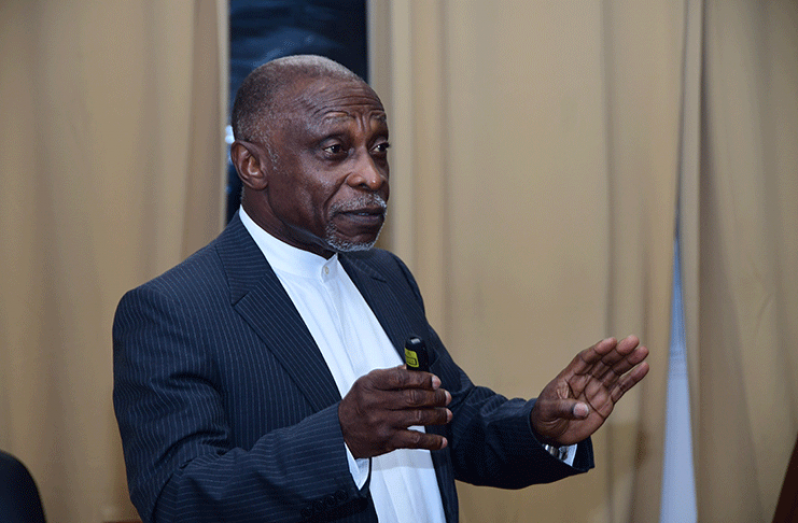Guyana’s former Foreign Minister, Carl Greenidge, has stressed the need for the nation to partner with financially strong and technically capable companies to ensure the sustainable development of its oil and gas sector.
Speaking during a webinar hosted by the Guyana Business Journal & Magazine on January 8, Greenidge highlighted the risks of under-resourced operations and pointed to CGX Energy’s struggles as a cautionary tale for the country.
According to Greenidge, Guyana currently lacks the financial and technical capacity to undertake large-scale oil exploration independently, making strong partnerships essential.
“Guyana has neither the competence nor the financial capacity to undertake the large-scale oil exploration necessary to capitalize on our resources,” he said.
Using CGX Energy as an example, Greenidge recounted how the Canadian company, which played a key role in Guyana’s early oil exploration efforts, encountered challenges when drilling pressures exceeded its technical capabilities.
“When CGX encountered high pressures during drilling, it had to seek a partner with the resources and expertise to manage such conditions,” he pointed out.
CGX Energy, in partnership with Frontera Energy, has faced significant challenges in Guyana, particularly regarding the Corentyne Block. Financial difficulties have severely hindered their ability to fund drilling operations, despite promising discoveries at the Kawa-1 and Wei-1 wells.
Vice President Bharrat Jagdeo recently confirmed that CGX’s Corentyne license had lapsed due to unfulfilled contractual obligations.
The joint venture stated last December that it sent the government a letter, activating a 60-day period to resolve the dispute over this matter via negotiation. If that fails, the Corentyne license gives them the right to seek a resolution through arbitration or a sole expert.
Reaffirming his point, Greenidge explains that this is why it is important to secure partners who can meet the demands of Guyana’s rapidly expanding oil sector.
“Partnering with well-funded and skilled companies is not just about exploitation of resources. It’s about ensuring that these partnerships lead to long-term growth, stability, and equitable benefits for Guyana,” Greenidge said.
Greenidge, who is also an economist, said there is a need for “strategic governance” to avoid the risks posed by inadequate partnerships.
“It’s not a question of identifying an oil company and saying, ‘Hi, you have money, you have the skills, come and drill.’ You have to ensure that they commit their resources and skills to the project,” he said.
While CGX Energy’s early efforts contributed to the identification of Guyana’s massive oil potential, Greenidge explained that this serves as a reminder of the high financial and technical stakes in oil exploration.
Greenidge noted that the lessons from such cases must guide future decisions, particularly as Guyana continues to attract global energy giants such as ExxonMobil.
ExxonMobil, along with co-venturers Hess and CNOOC, has committed over GY$11 trillion in investments through 2027.
ExxonMobil’s offshore operations in Guyana touted as the most successful globally, have already led to over 30 discoveries, with plans to deploy eight floating production, storage, and offloading (FPSO) vessels by 2027.
These developments are projected to boost oil production to 1.7 million barrels per day by 2030, significantly impacting Guyana’s economy, creating jobs, and promoting local content initiatives.



